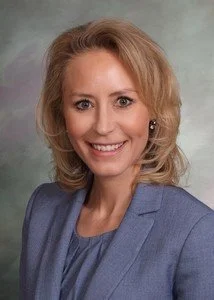Female Inmates Given Access to Prison Program in Wyoming for the First Time in More Than a Quarter Century
State launches therapy-based program for younger inmates to replace boot camp
Dec. 14, 2021
The former Boot Camp program was available only to male inmates in the Wyoming Department of Corrections system. The new Youthful Offender Transition Program, which began in June, is available to female inmates at the Wyoming Women's Center in Lusk (shown here) as well as male inmates at the Wyoming State Penitentiary in Rawlins. (Courtesy photo, Wyoming Department of Corrections)
By Kristi Eaton
Special to the Wyoming Truth
The Wyoming Department of Corrections has replaced its paramilitary-style rehabilitation Boot Camp for inmates ages 18 to 30 with a diversion program that emphasizes therapy instead of physical fitness and for the first time in 31 years allows female inmates to participate without having to leave the state.
The Wyoming Truth has learned that two inmates at the Wyoming Women’s Center in Lusk are participating in the revamped Youthful Offender Transition Program, marking a milestone four years after a lawsuit was filed charging the state with gender discrimination.
The legislature created the program in 1987, and it opened three years later at the Wyoming Conservation Camp in Newcastle. It offered male inmates ages 18 to 25 the opportunity to successfully complete up to six months in a physically demanding environment in exchange for reducing their sentences, which ranged from several years to more than 10 years for their crimes. Because the Boot Camp facility never offered separate housing for female inmates, no trial judge in Wyoming had ever offered that early-release option when sentencing a female – until 2017.
In 2017, Taylor Blanchard became the first female inmate in Wyoming to be recommended by a trial judge to participate in the Youthful Offender Program, and it was only after she sued the state that she was placed in a boot camp in Florida because Wyoming did not operate one at that time for females. (Courtesy photo)
That’s when the American Civil Liberties Union filed a federal lawsuit alleging gender discrimination on behalf of Taylor Blanchard, a then-23-year-old first-time offender who was convicted of a drug-related crime and sentenced to six to 10 years in prison. A judge in Sublette County recommended that Blanchard be sent to the state’s Boot Camp, the first time the Department of Corrections had to deal with such a request.
Because Wyoming did not have a boot camp program for women, Blanchard was sent to a boot camp in Florida and completed a four-month program before returning to Wyoming. Her sentencing judge placed her on probation, but she violated conditions of her parole and the judge sent her back to prison. She’s now back on parole, according to the Wyoming Department of Corrections and ACLU attorney Stephen Pevar, who represented Blanchard during the lawsuit.
Pevar filed the suit on behalf of Blanchard and 15 women in state custody who he said did not receive Boot Camp recommendations but would have been eligible. A federal judge dismissed the suit because by that time Blanchard had already served her four months in the Florida boot camp and she no longer held legal standing to bring the suit.
“Both the DOC and the legislature want these programs to be effective in the ability to provide both punishment for the underlying offense as well as successful rehabilitative outcomes,” says state Sen. Tara Nethercott, chair of the Senate Judiciary Committee. (Courtesy photo, Wyoming Legislature)
Blanchard’s case, however, paved the way for three other female inmates in Wyoming to participate in the same Florida Boot Camp and reduce their sentences. Paul Martin, deputy administrator of the transparency division at the Department of Corrections, said those inmates include Samantha Taylor (April 5 to Oct. 18, 2018), Maria Gomez (June 19 to Nov. 4, 2018) and Kyli Defreese (Nov. 22, 2018, to April 6, 2019).
But it wasn’t until the Wyoming legislature approved changes to the Youthful Offender Program in March of this year that female inmates in the program were able to remain in state.
The legislation added the word “Transition” to the program’s name and increased the maximum age for eligibility from 25 to 30. House Bill 34 did not specifically address the gender issue, but the Department of Corrections decided to operate the program for male inmates at the Wyoming State Penitentiary in Rawlins and for female inmates at the Wyoming Women’s Center in Lusk.
Prison spokesperson Martin confirmed to the Wyoming Truth that two female inmates are participating in the program.
The program changes come at a time when the number of females incarcerated in Wyoming continues to grow. Wyoming had the fifth-highest incarceration rate in the nation for women in 2019, the most recent year for which figures are available, with 118 per 100,000 female residents, according to The Sentencing Project. Wyoming followed only Idaho, Oklahoma, Kentucky and South Dakota. It can house up to 261 female inmates at the Wyoming Women’s Center after the facility was expanded in 2007 from the original 82 beds.
Pevar, the ACLU attorney who filed the discrimination suit in 2017, told the Wyoming Truth that he was pleased with changes to the Youthful Offender Transition Program but also said it was important moving forward to make sure the program offers equal opportunities for men and women to reduce their sentences.
Pevar explained that he appealed the district court ruling in the 2017 lawsuit involving Blanchard because, although she completed the female boot camp in Florida, “she still hadn't received what the men had received.”
He added that “during the argument on appeal, one judge asked why Ms. Blanchard wasn't happy with being on probation and whether she was contending she needed to return for a few more months of programming. I said: ‘Ms. Blanchard's goal isn't just to get out of prison, it's to stay out of prison. Yes, she's willing to return for more programming.’ Unfortunately, the appellate court agreed with the district court that the case was moot.”
At the former Boot Camp in Wyoming, inmates’ days routinely started at 4 a.m. and ended at 9 p.m. with almost six hours of that time devoted to physical activity, according to the Department of Corrections. Any inmates who had not yet earned their General Equivalency Diploma (GED) also had to complete that while in the 180-day program.
The new program emphasizes mental, emotional and physical health that seeks to identify why these inmates got in trouble and prevent them from committing another crime after their early release, said Shea Rose, unit manager for the program at the Wyoming State Penitentiary, in an interview with the Wyoming Truth. It does not involve the heavy emphasis on physical activities, including running, sit-ups, push-ups and pull-ups, he added.
“They're going from one end of the spectrum, with that paramilitary group-style, or boot camp-style to the therapeutic community, which is kind of on the opposite spectrum,” Rose said.
The program incorporates individual counseling sessions with a health professional, group sessions with a professional and group sessions among the program participants.
“We have case management and staff security staff that do one-on-ones with group sessions as well, so we have a lot of representatives from different departments that have their hand in the mix,” he added.
Six men graduated from the Youthful Offender Transition Program in October who had started the program at the Boot Camp, and another three males completed the program last week, Rose said. Changes to the program took effect July 1.
Neicole Molden, deputy warden at the Wyoming State Penitentiary, believes the new Youthful Offender Transition Program's therapy-based approach will make a greater difference in helping rehabilitate young inmates. (Courtesy photo, Wyoming Department of Corrections)
To be eligible for the program, the inmate must be between the ages of 18 and 30, not been incarcerated in a state or federal adult prison, not be guilty of a crime punishable by death or life in prison and get permission from a court. Participants who complete the program and follow probationary guidelines will not have to complete their initial prison term, said Neicole Molden, deputy warden at the Wyoming State Penitentiary.
The sentencing court will recommend that they complete the program before doing any prison time, said Rose, unit manager at the Wyoming State Penitentiary. While they are participating in the program, they are separated from other inmates. The program has three phases: early intervention and contemplation, intensive treatment and re-entry preparation. The program lasts at least 180 days and no longer than one year.
“They can petition the court to take part, but usually the recommendation to complete the program comes during the sentencing phase prior to them becoming incarcerated,” Rose said. “The vast majority of the participants will go through the intake process at the Wyoming Medium Correctional Institute (WMCI) in Torrington, Wyoming, and then [be] transported to the YOTP program (Youthful Offender Transition Program).”
The program is designed to reduce the prison population in Wyoming, which incarcerates 850 people per 100,000 people, according to the Prison Policy Initiative. That ranks it ninth in the nation among the highest incarceration rates per capita. Louisiana ranks No. 1 with 1,094 people per 100,000 residents, followed by Mississippi, Oklahoma, Georgia and Arkansas.
Changes to the program were created at the request of the Department of Corrections, said Sen. Tara Nethercott (R-Laramie County), chairperson of the state Judiciary Committee. House Bill 34 was introduced last January and passed four weeks later.
“The bill seeks to modernize what once was the Boot Camp program by expanding the scope of eligible offenders and programming from a military style to a more structured environment with a combination of a physical, academic and mental coursework,” she said.
She added testimony provided by the Department of Corrections indicated that the next generation of offenders responds more effectively to a less militarized structure. “Both the DOC and the legislature want these programs to be effective in the ability to provide both punishment for the underlying offense as well as successful rehabilitative outcomes,” Nethercott said.
Deputy Warden Molden agrees.
“From what I observe, I feel like with what we're doing now, we are reaching to them deep inside to see exactly what's going on with them to see whether it's mental issues, whether it's drug addiction,” she said. “I think we can reach those areas more and have more one-on-one transitions.”
Dixie McCollum, assistant director of the Wyoming Truth, contributed to this report.
The Wyoming Truth is a nonpartisan nonprofit watchdog organization whose mission is to fight injustices, help the community and protect the rights of local citizens. To sign up for a free subscription, or to make a donation, please go to www.wyomingtruth.org. Other media outlets are free to run this article as long as they credit the “Wyoming Truth” and link to our website, wyomingtruth.org. If you have any tips about this issue or others, or for more information about the Wyoming Truth, contact us at info@wyomingtruth.org.




